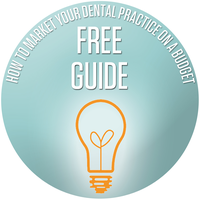Which of the five senses do people worry about losing the most? Vision. When talking with your patients, it’s important to remind them about taking good care of their vision. Without vision, life becomes infinitely more challenging. In addition to the loss of independence, vision loss can also lead to:
- Inability to continue working
- Difficulty socializing
- Increased falls and other accidents causing injuries
- Inability to read
- Inability to drive

Unfortunately, many adults do not schedule annual eye appointments. This means that although vision is a priority, they aren't taking the appropriate steps to protect their vision.
As an eye care provider, it is important to stress your services. Patients need to be reminded why vision care is important. They need to be told how regular eye exams can protect them from vision loss. Eye care providers realize that routine eye exams can detect signs of vision loss early, but patients may not know this. Providers realize steps can be taken in the early stages of the disease to slow the progression. But, the average patient may not recognize the importance of early detection.
Certain adults are at higher risk of vision loss. Patients with any of the following should be made aware that a routine eye exam is necessary due to their increased risk level:
- Diabetes
- High blood pressure
- Cardiovascular disease
- High cholesterol
- Family history of eye disorder
In addition, patients who smoke, or have a history of smoking, are at increased risk for macular degeneration and should be made aware that they need to be monitored regularly.
With many aspects of medical care, people don't seek treatment until they have symptoms that are causing them an issue. Often people wait until the symptoms are interfering with their life. Unfortunately with eye diseases, as you know, by the time the symptoms occur, it may be too late. And, it often isn’t possible to reverse the damage that has been done.
Patients need to understand that many eye diseases may not have symptoms for a decade. Yet, if it’s caught early, as is the case with glaucoma, progression can be slowed. Educating patients about this is important so they realize regular vision exams are vital to the long-term health of their eyes.
Detection of Other Issues and Conditions
In addition to pointing out that routine eye exams can detect an issue early, it is also important to let patients know that eye exams can detect other issues in the body. Examples include:
- Diabetes
- Multiple sclerosis
- Cancer
If detected through an eye exam, treatment can be started before symptoms of the disease would have been noticed. This can result in a better long-term prognosis.
Stress to eye patients that early detection is necessary for long-term vision. Let them know that an eye exam is about more than getting new glasses—it’s about ensuring the health of your vision.



